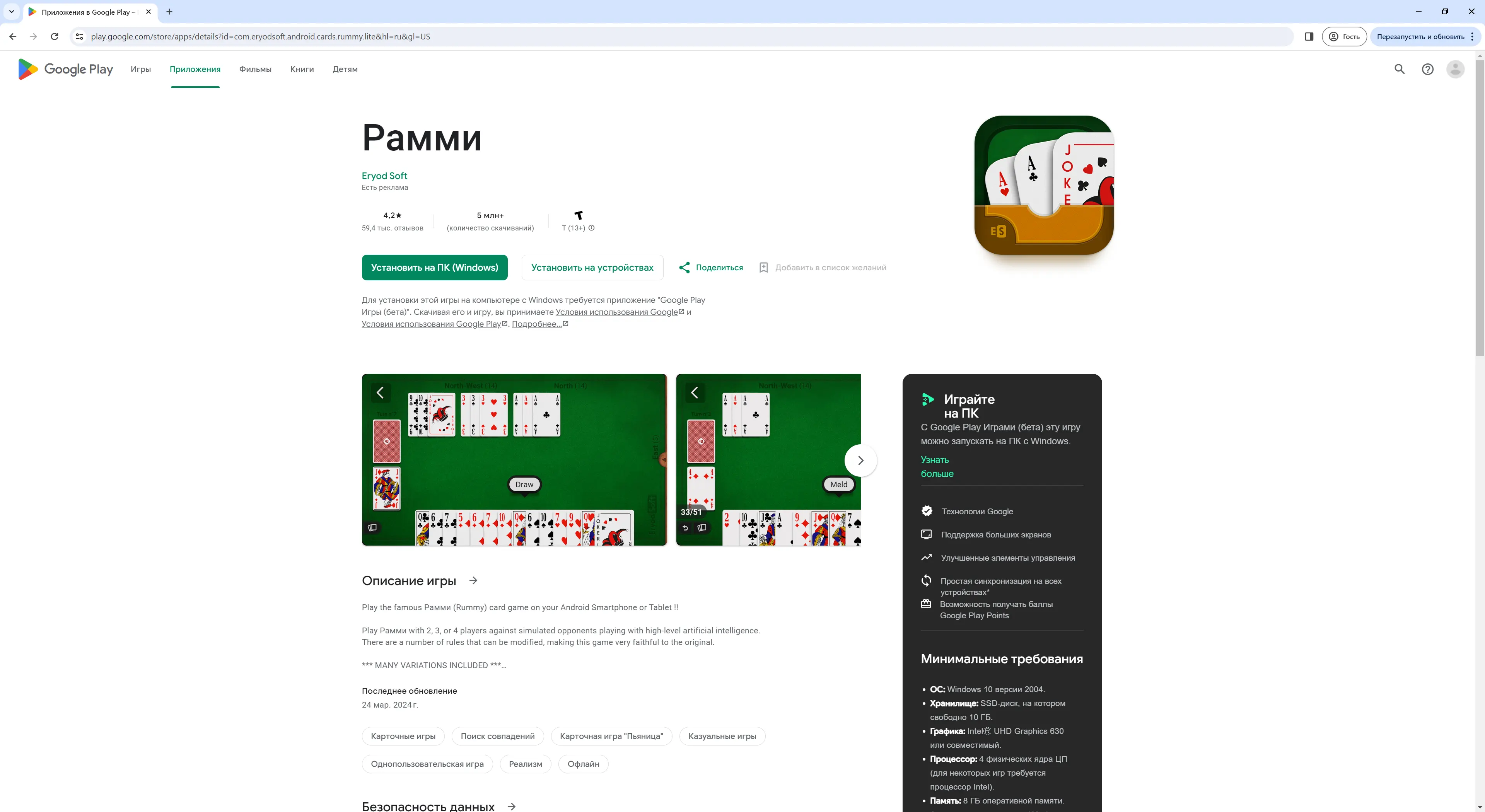




Embark on an exciting journey into the world of Rummy, the classic card game loved by millions worldwide! Whether you're a seasoned player or new to the game, Rummy offers an immersive experience that will keep you entertained for hours. Challenge smart AI opponents on a variety of difficulty levels, or invite friends and family to an exciting multiplayer battle. With intuitive controls and smooth gameplay, Rummy is easy to learn but challenging to master, making it suitable for players of all ages from 18 years of age.


Rummy is a captivating card game enjoyed by players worldwide. It's a game of skill, strategy, and excitement, appealing to individuals of all ages.
As per our policy, Rummy is intended for individuals who have reached the age of 18 and above. By engaging in the game, players acknowledge that they meet the required age threshold and are responsible for complying with all applicable laws and regulations regarding online gaming and gambling.
Players under the age of 18 are prohibited from participating in Rummy games. We encourage all players to play responsibly and to seek assistance if they feel they may have developed a gambling problem.
Thank you for your understanding and cooperation.
Rummy is a classic card game with a rich history that spans continents and generations. While its exact origins remain a topic of debate among historians, it is widely believed to have emerged in the early 20th century, possibly in the United States. The game's roots may be traced back to similar card games played in Europe and Asia, such as Conquian and Mahjong.
Central to Rummy's appeal is its simple yet engaging gameplay. Typically played with a standard deck of 52 cards, the game challenges players to create valid combinations of cards, such as sets (three or four cards of the same rank) and sequences (three or more consecutive cards of the same suit). The strategic depth of Rummy lies in players' ability to anticipate their opponents' moves while managing their own hand effectively.
Over the years, Rummy has evolved into numerous variants, each with its own unique rules and gameplay mechanics. Some of the most popular variants include Gin Rummy, Indian Rummy, and Canasta. These variants have helped to keep the game fresh and appealing to players of all ages and skill levels.
Rummy's popularity extends far beyond the confines of the card table. It has become a cultural phenomenon, enjoyed by millions of people around the world. Whether played casually among friends and family or competitively in tournaments and clubs, Rummy fosters social interaction and friendly competition.
In recent years, Rummy has embraced the digital age with the advent of online platforms and mobile apps. These platforms allow players to enjoy the game anytime, anywhere, and often include features such as multiplayer functionality, customizable rule sets, and statistics tracking.
With its rich history, diverse variants, and universal appeal, Rummy remains a timeless favorite among card game enthusiasts. Whether you're a seasoned player or new to the game, Rummy offers endless opportunities for entertainment, camaraderie, and strategic thinking.
Rummy is a classic card game with a rich history that has fascinated players for centuries. While its exact origins remain debated, there are two prevailing theories. One theory suggests that Rummy originated in Mexico around the 1890s, where it was played as a game called Conquian using a 40-card Spanish deck. Another theory posits that Rummy may have originated in Asia, possibly evolving from a Mahjongg variant named Kun P'ai, which was later Westernized as Khanhoo by W.H. Wilkinson in 1891.
Games scholar David Parlett suggests that the Mexican game of Conquian, first documented in 1852, serves as the ancestor to all Rummy games. He also proposes that Conquian shares similarities with the Chinese game Khanhoo. The fundamental Rummy principle of drawing and discarding with the goal of melding cards is observed in Chinese card games as early as the 18th century.
Rummy gained popularity worldwide in the 20th century, with variations like Gin Rummy and Canasta becoming particularly popular. In India, Rummy games, including Indian Rummy, gained prominence and are believed to be extensions of Gin Rummy and 500 rum, which originated in the United States.
The origin of the name "rummy" remains a topic of speculation. Some attribute it to the British slang word "rum," meaning odd or strange. Others suggest it may be linked to the game Rum Poker or the alcoholic beverage of the same name.
Regardless of its origins, Rummy has endured the test of time and continues to captivate players worldwide with its engaging gameplay and strategic depth.
The objective of Rummy is to form sets and sequences of cards and to be the first player to discard all their cards.
Rummy is typically played with a standard deck of 52 cards. The jokers are usually included and used as wild cards. Each player is dealt a hand of cards, usually 10 cards for 2 players, 7 or 10 cards for 3-4 players, and 6 or 7 cards for 5-6 players.
At the end of each round, players score points based on the cards remaining in their hand. Face cards (Kings, Queens, Jacks) are worth 10 points each, while numbered cards are worth their face value. Aces are typically worth 1 point. The winner of the round scores zero points, and the losers score points based on the cards remaining in their hand.
The game continues for a predetermined number of rounds, and the player with the lowest score at the end of the final round is declared the winner.